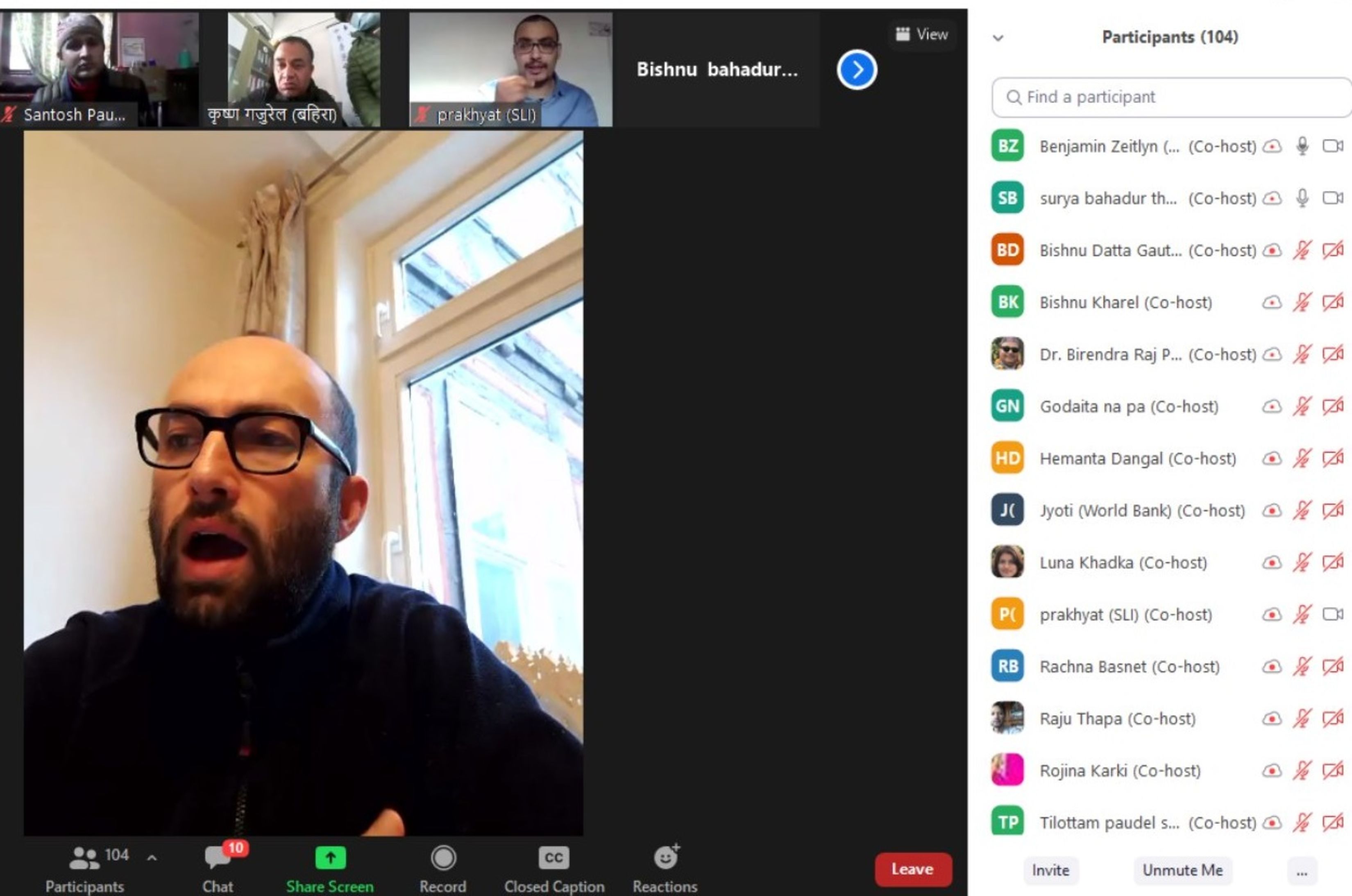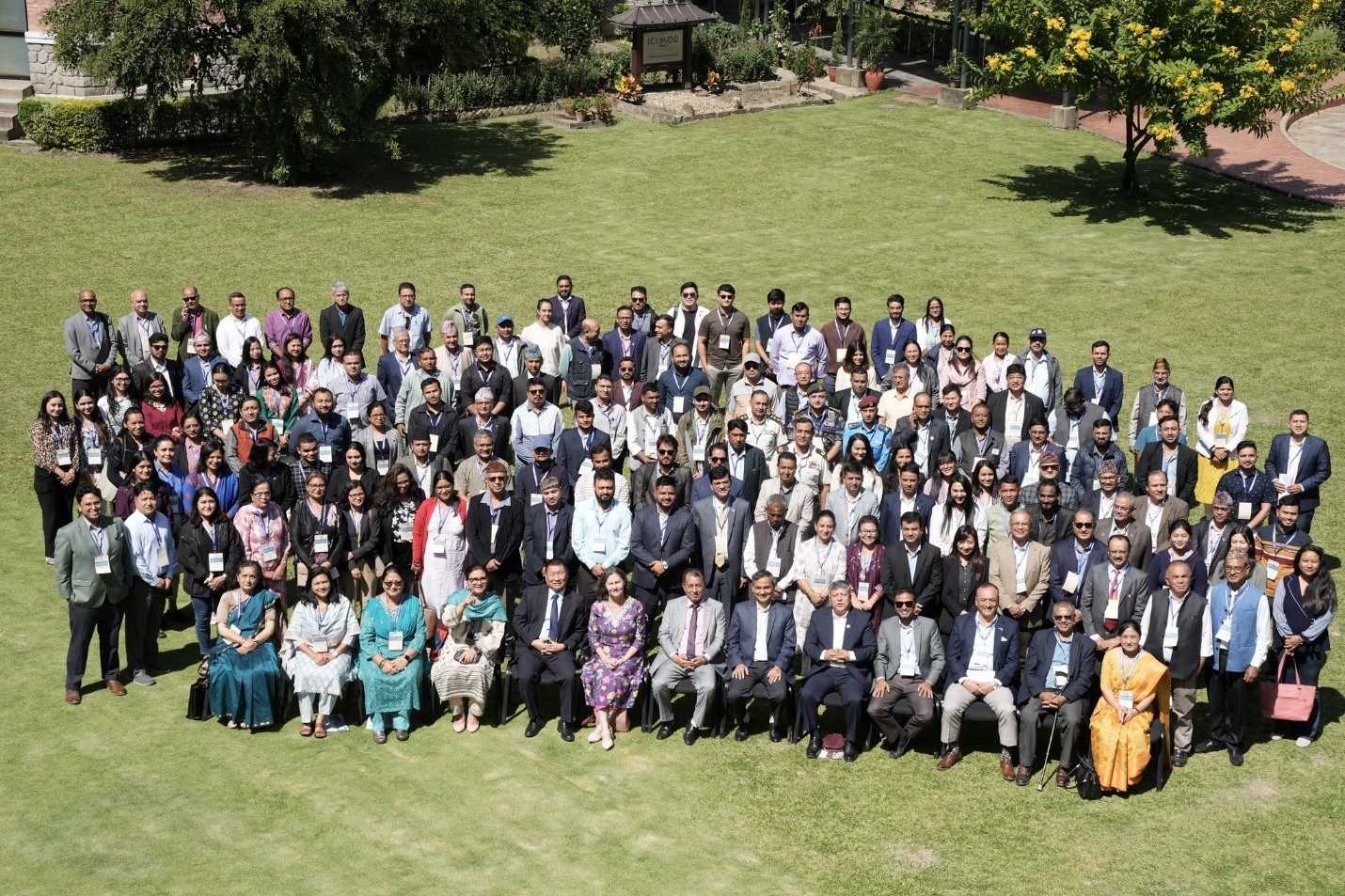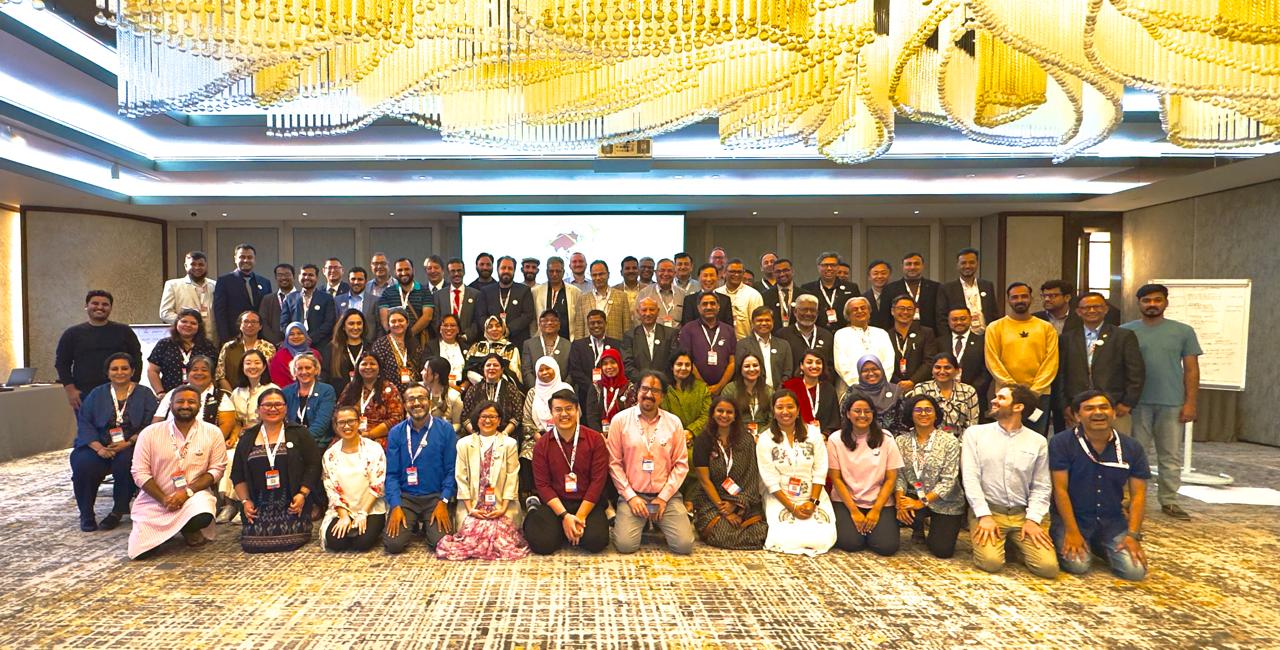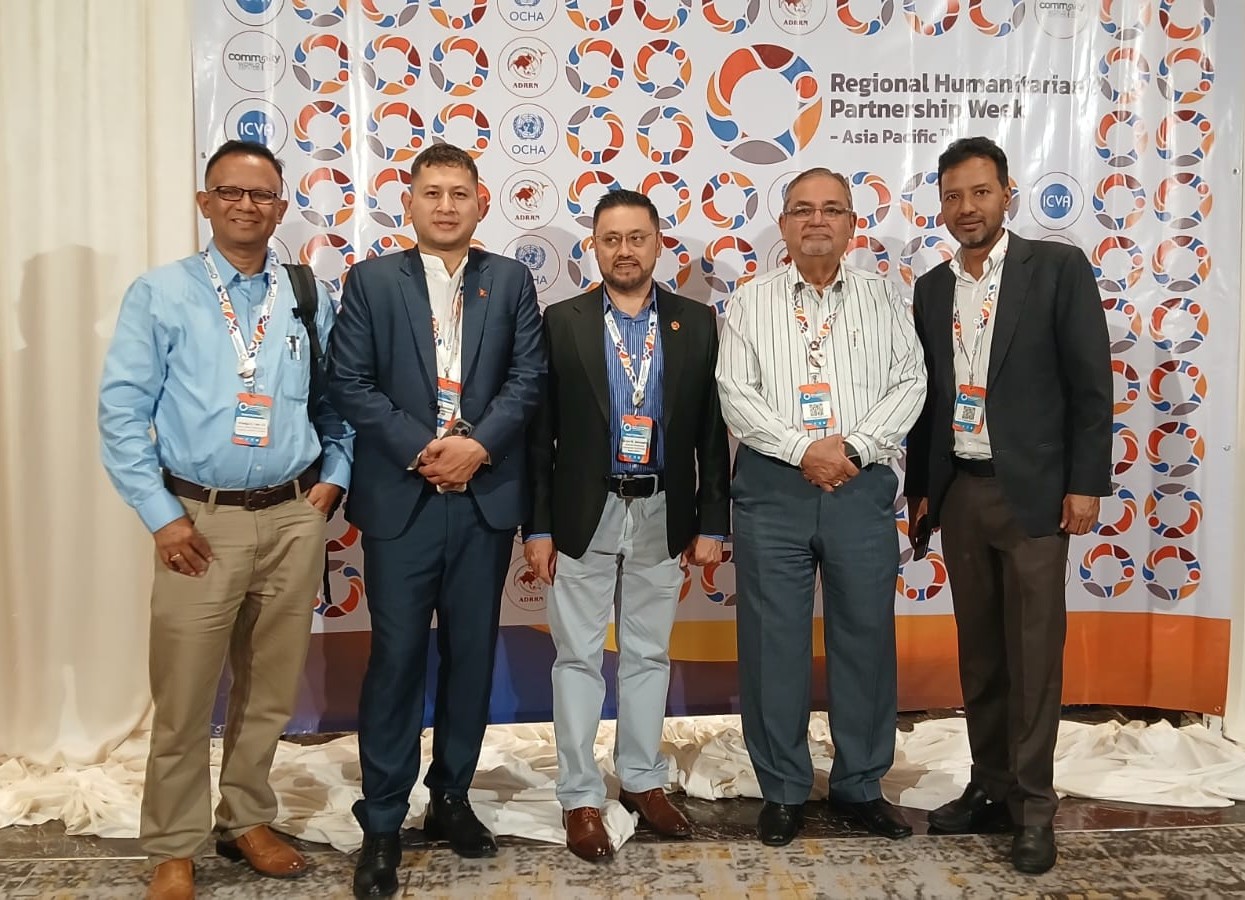Virtual Discussion on “Unveiling the Potential of Shock-Responsive Social Protection in Nepal"

Virtual Discussion on “Unveiling the Potential of Shock-Responsive Social Protection in Nepal"
A Virtual Discussion Program on Exploring the Potential of Shock-Responsive Social Protection in Nepal was coordinated by DPNet-Nepal and organized by Save the Children International, Atullya Foundation, CBDRM Platform, IFRC, and SPCSN on December 23, 2020. The program had 104 participants and was graced by the presence of Honorable Dr. Ram Kumar Phuyal, Member of the National Planning Commission (NPC), as the Chief Guest, and Mr. Bishnu Dutta Gautam, Joint Secretary of MoFAGA, as a Special Guest. The program also provided sign language interpretation and closed captioning facilities to accommodate participants with disabilities. Mr. Surya Bahadur Thapa, Chairperson, and Raju Thapa, General Secretary of DPNet-Nepal, served as the program moderators.
Ms. Jenifer Syed, Country Director of Save the Children, delivered the welcome remarks, expressing gratitude to the Chief Guest, Special Guests, organizers, and all participants, including government representatives, UN agencies, I/NGOs, Red Cross Movement, and Civil Society. She highlighted the importance of shock-responsive social protection as a quick and effective way to respond to disasters and mentioned Save the Children's focus on child-sensitive social protection since 2011. She expressed hope that the program would reach a wider stakeholder group and contribute to a better understanding of the existing social protection system, exploring its potential for emergency response and localized investment.
Mr. Benzamin Zeitlyn, Social Development Adviser at FCDO, British Embassy, highlighted the concept of shock-responsive social protection in his opening remarks. He mentioned the challenges faced during the COVID-19 pandemic in delivering support to vulnerable populations and stressed the importance of utilizing the existing social protection system to effectively respond to crises. He cited examples from Kenya's Hunger SafetyNet program and urged Nepal to improve its emergency response, emphasizing the need for preparedness and the role of shock-responsive social protection in replacing humanitarian agency support.
Mr. Birendra Pokhrel, former Chairperson of the National Federation of Disabled Nepal (NFDN), focused on the vulnerability of persons with disabilities and their inclusion in the shock-responsive social protection system. He acknowledged the efforts made in policy frameworks but emphasized the need for better implementation and support, particularly in terms of cash transfers during disaster response. He highlighted the provisions of the Convention on the Rights of Persons with Disabilities (UNCRPD) and its relevance to shock-responsive social protection.
Mr. Hemanta Dangal from Save the Children presented a case study on "Supporting Children's Nutrition Using the Child Grant Beneficiary Database in the COVID-19 Pandemic." He shared the organization's experience and lessons learned from implementing the Child-Sensitive Social Protection program since 2011, including beneficiary targeting, enrollment programs, and grievance handling mechanisms.
Mr. Bishnu Dutta Gautam, Joint Secretary of MOFAGA, expressed appreciation for the program and its relevance to the current context. He discussed the complexities and challenges associated with shock-responsive social protection, including beneficiary identification and resource gaps. He emphasized the importance of coordination, strengthening the database system, and considering cash transfers as a viable option. He highlighted the role of local-level engagement in implementing shock-responsive social protection.
During the program, Ms. Jyoti Pandey from the World Bank shared her insights on the National and International Experience of Shock-Responsive Social Protection (SRSP). She highlighted the importance of pre- and post-disaster database preparation to enable timely and effective responses. Her presentation focused on the impact of COVID-19 on social protection and discussed the key building blocks of SRSP, including adaptability, information management, adaptive programs, and adaptive financing. She provided examples from various countries, such as Ethiopia's Productive SafetyNet program and the Philippines' Pantawid program, which successfully utilized nationwide conditional cash transfers to alleviate poverty and enhance the well-being of disadvantaged children. Ms. Pandey also addressed the current status of SRSP in Nepal, highlighting the nascent delivery system, existing programs, and financing mechanisms. She suggested that the National Disaster Risk Reduction and Management Authority (NDRRMA) could facilitate the establishment of a dedicated cell or unit for social protection.
Mr. Bishnu Lamichhane from the Department of National ID and Civil Registration (DONIDCR) delivered a presentation on Social Protection and Governance in Nepal. He covered topics such as the concept of social security in Nepal, its initiation, and the various types of social security allowances available.
As the Chief Guest of the program, Honorable Dr. Ram Kumar Phuyal, a Member of the National Planning Commission (NPC), provided an overview of the current status of Shock-Responsive Social Protection (SRSP) in the Nepalese government. He discussed the constitutional provisions related to social rights and highlighted that the 15th periodic plan aims to achieve equitable resource distribution and include a disaster-sensitive development package, with the goal of encompassing 60% of the Nepalese population under social protection within five years. Dr. Phuyal mentioned that the NPC has prepared the Integrated National Social Framework 2077, which will soon be endorsed and implemented. He acknowledged the need to address data mismanagement issues to ensure that those in need are not excluded from social protection programs. Dr. Phuyal emphasized the importance of adopting a need-based, right-based, and contribution-based approach to social protection. He also identified weak coordination and collaboration mechanisms between ministries and agencies as challenges within the social protection system. However, he expressed optimism that the promulgation of the Integrated National Social Framework 2077 will strengthen coordination, collaboration, and the overall social protection system.
Major Highlights from the speakers:
During the ranking process, there may be challenges in accurately identifying the beneficiaries. In light of this, how can we address and overcome these challenges as we move forward?
It is our expectation that the government will take proactive measures to promote inclusivity for people with disabilities, including providing accessible information, implementing disability-inclusive programs, and improving infrastructure. In particular, it would be beneficial to include persons with disabilities in capacity-building programs.
The interlinkages between social protection and humanitarian assistance need to be thoroughly discussed. In Nepal, there seems to be skepticism regarding cash transfers. It is important to change our attitude towards cash transfers and not solely rely on in-kind support. We should not doubt the effectiveness of cash transfers and explore their potential benefits.
In his concluding remarks, Mr. Tilottam Paudel, Chairperson of the Social Protection Civil Society Network (SPSCN), expressed gratitude towards the organizers, Chief Guest, Special Guest, Speakers, and participants for their valuable presence, time, and contributions. He emphasized the importance of such programs in raising awareness about the necessity of Shock Responsive Social Protection (SRSP) in Nepal. Mr. Paudel also extended his appreciation to Dr. Phuyal for his efforts in developing the Integrated National Social Framework.
Furthermore, Mr. Raju Thapa, General Secretary of DPNet and Coordinator of the Sphere Coordination Committee, proposed the formation of an Expert Team to prepare recommendations that can be presented to the Government, donors, and relevant stakeholders. He expressed gratitude to all the presenters, participants, and organizers for their active involvement and officially concluded the program.











